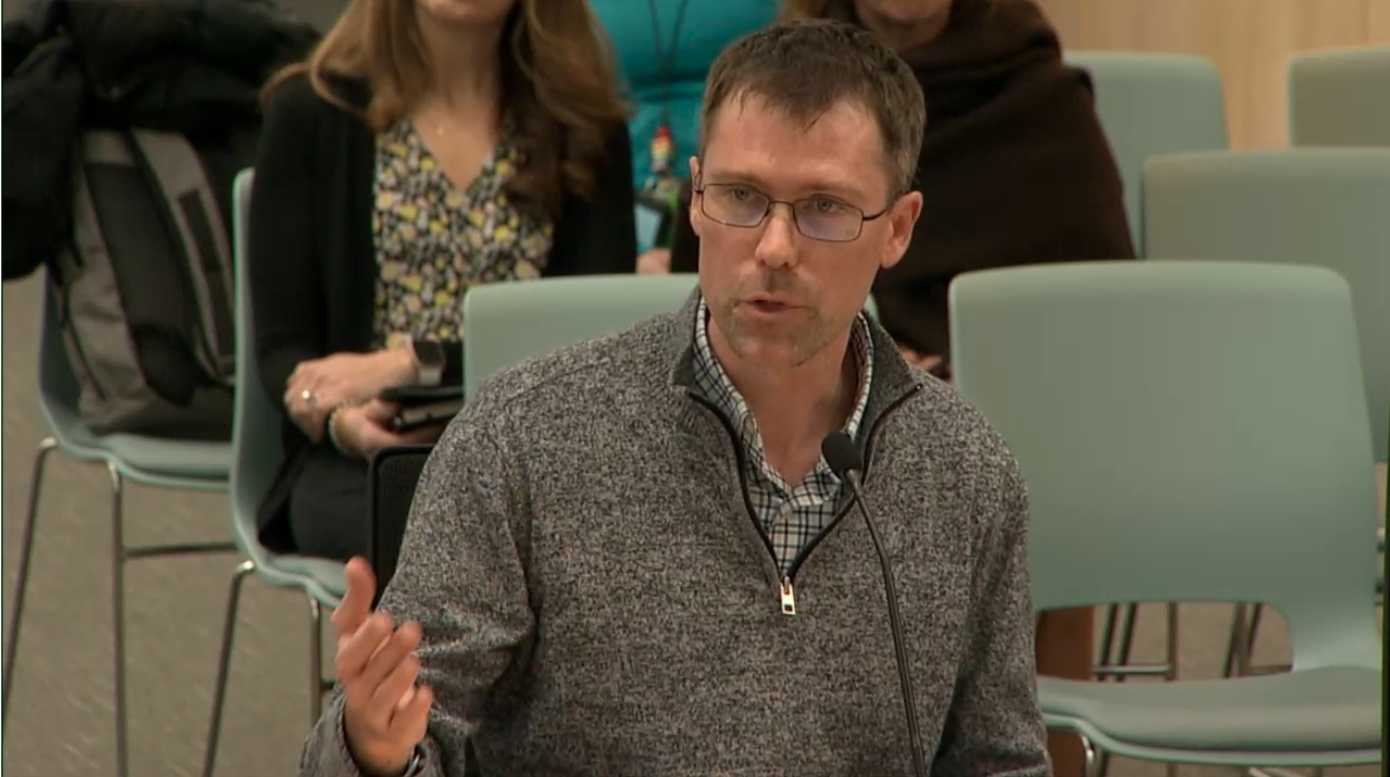
A newly formed committee says it aims to learn more about how Arlington Public Schools students use their school-provided devices both in and out of the classroom.
The Educational Technology Advisory Committee, which formed last year, consists of parents, technology specialists and APS personnel. One of their top priorities is determining the educational impacts of the iPads and MacBooks that APS provides all students.
“I think parents are really interested to know, how are they used, and how is it helping our children?” committee Chair Chris Woolfe told the Arlington School Board yesterday evening (Tuesday) during a work session.
Of particular interest, according to a committee progress report, is the degree to which devices are distracting students in class as well as any connection between device usage and academic performance.
“Our immediate goal is to gather student iPad & MacBook usage data,” the report says. “This would help inform all of our decisions moving forward and these kinds of analytics are standard in the industry now.”
Some parents have raised concerns about APS’s one-to-one device program, which previously only provided devices to students in grades 3-12 but expanded in 2020 to include K-2 students. School Board watchdog group Arlington Parents for Education in September 2022 called for a more thorough examination of how effectively iPads and MacBooks help children learn.
While a polarizing issue for parents, some students have pointed out that the devices can make it easier for them to organize their schoolwork and find information.
School Board member Mary Kadera argued on Tuesday that the school system has an obligation to provide parents with more information about school-issued technology.
“We have to. We just have to,” Kadera said. “As a parent, I am continually frustrated by the fact that I have so little visibility on what my kids are actually doing on their APS-issued devices.”
A 2019 study found that Arlington students were spending substantial portions of their school days using electronic devices: about 40% for elementary-aged students and 53% and 58%, respectively, for middle and high school students.
In addition to learning more about device usage, the Educational Technology Advisory Committee wants to reconsider the effects of accessories such as headphones. These are often necessary to avoid disrupting other students but they are one of the pricier items on school supply lists.
The advisory committee intends to make specific recommendations about school-issued devices only once it has collected and reviewed usage data.
Its February progress report notes that this is “a unique cultural moment,” with students learning in ways that are very different from how their parents were taught. Ultimately, the committee says it aims to represent the views of APS and parents, even when they may be at odds.
“This committee allows bidirectional communication between our school system and our parents,” the progress report says. “We aim to help parents better understand how tech is used at APS which hopefully may ease some anxiety. We also aim to help APS better understand how tech impacts students from a parents’ perspective, so that we can make necessary course corrections.”

